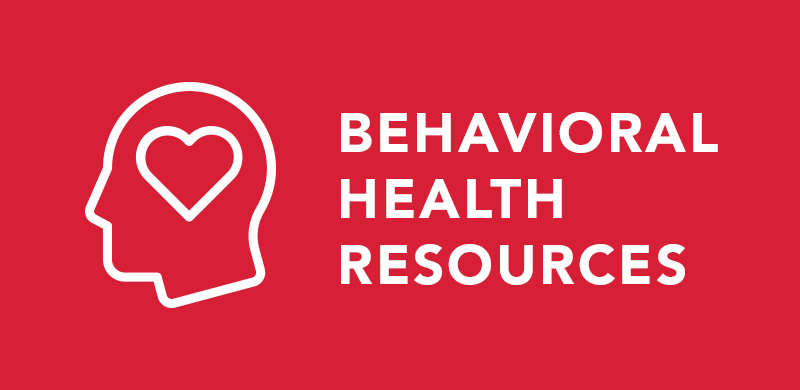
Published July 2022
Many men have been reluctant to seek medical attention, whether something feels off or they are due for preventive care. Societal pressures and various opinions on how men should deal with health issues may be to blame. In fact, 41% of males were told as children that men don’t complain about health. This may have pushed some men consciously (or subconsciously) to deprioritize visits to the doctor, greatly impacting their overall health.
Here, we’ll outline the essential health and cancer screenings men should prioritize throughout their lives and when they should get them.
 What health screenings should men prioritize and when?
What health screenings should men prioritize and when?
Although men and women can face similar health issues, some conditions are more prevalent in men. Despite this, men are more likely to avoid health screenings than women. The health problems that men may experience can vary depending on their age, family history and lifestyle, and this plays a significant role in determining when and what suggested screenings men should get. It’s always best to consult with a doctor to determine which health and cancer screenings make the most sense, but here are a few to keep in mind:
- Blood Pressure. Heart health is important at any age, but it’s recommended that all adults over the age of 20 get their blood pressure checked every two years. Individuals 40 or older—or younger with an increased risk of high blood pressure or other health conditions—should have a blood pressure test every year, which can be done during an annual physical. Maintaining a healthy weight, being physically active and eating a well-balanced diet can help keep blood pressure in a healthy range.
- Cholesterol and Heart Disease. Certain medical conditions and lifestyle choices can put people at higher risk for heart disease. Cholesterol levels should be checked every four to six years, starting at age 35 for men, with no known risk factors for coronary heart disease. However, if men have known risk factors, such as diabetes and kidney problems, cholesterol screenings should be conducted starting at age 20. Different lifestyle changes, such as reducing saturated fat intake and drinking alcohol in moderation, can help improve men’s cholesterol.
Learn More >> Find a Health Care Provider
- Colorectal cancer. Colorectal cancer screenings should begin at age 45, or earlier if men have certain health conditions or a family history of colon cancer. While a colonoscopy is the traditional procedure for identifying colon cancer, other options including take-home tests are available. Men can connect with their health care provider to determine which option is best for their health. Regular exercise and a healthy diet can also lower the risk of colorectal cancer.
- Diabetes. About one in five people with diabetes don’t know they have it. For men over the age of 45, it’s recommended that a doctor perform an initial blood sugar screening. If results are normal, they should get tested every three years. Men with a family history of diabetes or who have a body mass index above 25, regardless of age, should get tested more frequently. Men should talk to their provider about the best cadence for getting tested. Reducing total carb intake and drinking water as a main beverage can help lower the risks of getting diabetes.
Learn More >> Log into the Member Portal for Resources and Support
- Skin cancer. Most men should have a skin assessment to screen for different forms of skin cancer around age 30. In addition to getting routine skin checkups, be sure to check skin regularly at home for the development of any new marks and any changes to the shape, color and size of existing marks. Wearing sunscreen and avoiding exposure to UV light sources, such as tanning beds, are just some measures men can take to lower their risk of skin cancer.
- Prostate cancer. Aside from skin cancer, prostate cancer is the most common cancer in American men. While a doctor may provide a different recommendation, the Center for Disease Control and Prevention indicates that men who are 55 to 69 years old should make individual decisions about being screened for prostate cancer. If testing is recommended, it commonly includes a prostate-specific antigen (PSA) blood test. In addition to getting screened, men should aim to reduce their stress levels and cut down on processed foods to promote better prostate health.
Doctors will likely recommend additional screenings at certain stages of an individual’s life. Be sure to discuss screening options with a doctor during routine physical exams and bring up any concerns, whether it be about physical health or mental health—a topic that’s especially important for men as stigmas can often create barriers to treatment. Both physical and mental health play an important role in whole-person care, and because one impacts the other, it’s critical to prioritize both.
Learn More >> Find Behavioral Health Topics and Resources
 Don’t delay preventive care
Don’t delay preventive care
Most preventive care services, like routine check-ups, screenings and immunizations, are covered by individuals’ health insurance. And, lower out-of-pocket costs and cash rewards may be available to individuals who choose cost-effective providers for various health services and tests. For instance, Harvard Pilgrim Health Care members can utilize Reduce My Costs—a voluntary program that makes it easy for members to save money. It helps them find services at lower-cost facilities for elective procedures, outpatient medical care and diagnostic tests.
To stay proactive with their health, men should keep up with preventive appointments and health and cancer screenings as they age. Having a primary care physician (PCP) is a great place to start, especially when unexpected questions or health issues arise. For men who may want help finding a provider, their health plan can provide guidance for local options.
To confirm eligibility for any programs or services mentioned in this article as it relates to your specific health plan, please reach out to your account executive or HR benefits team. You may also speak to our member services team at (888)-333-4742 or by sending a secure email. And for plan details and other member resources, log in to the member portal.


